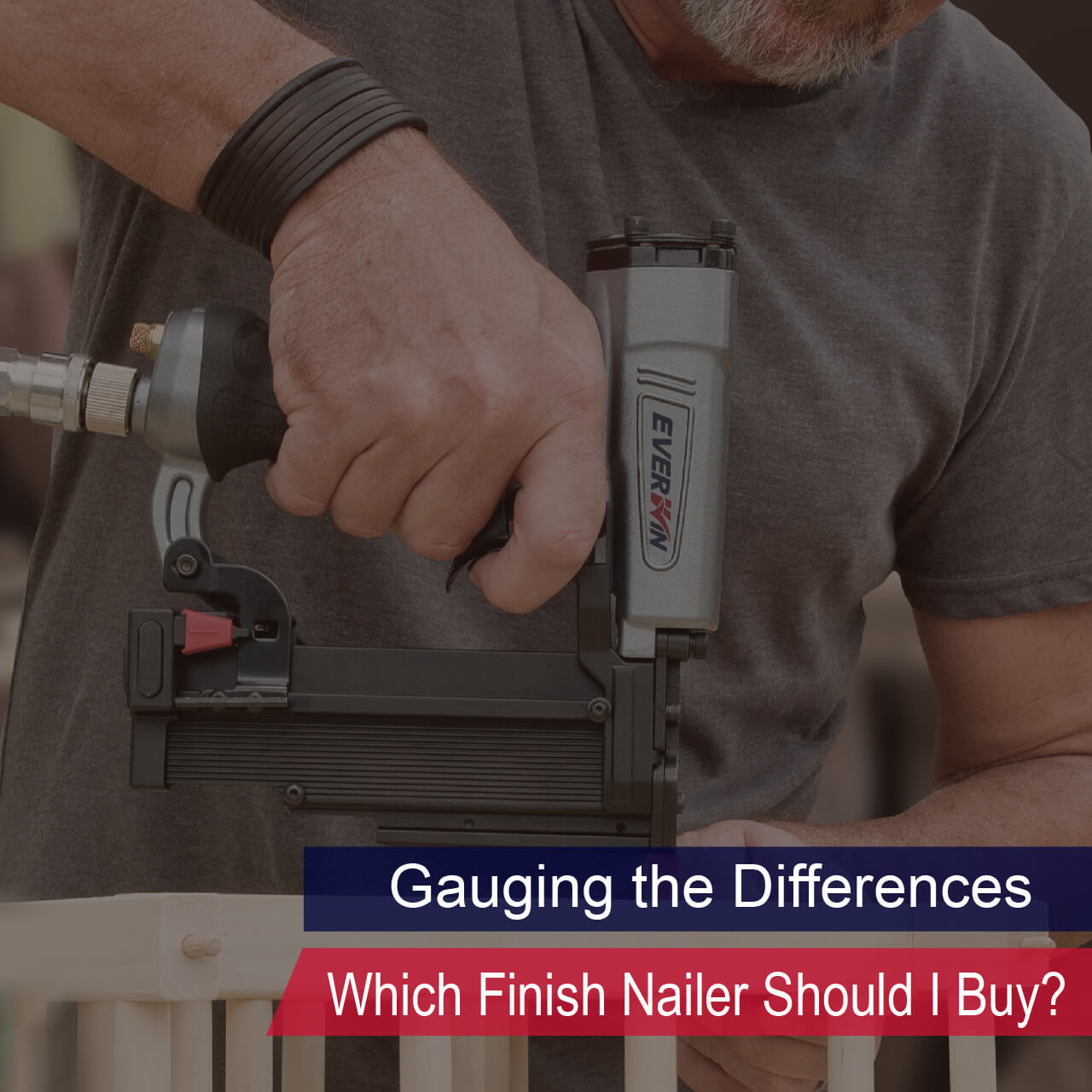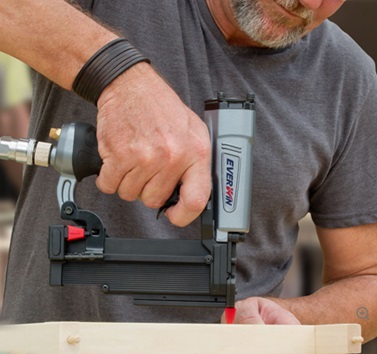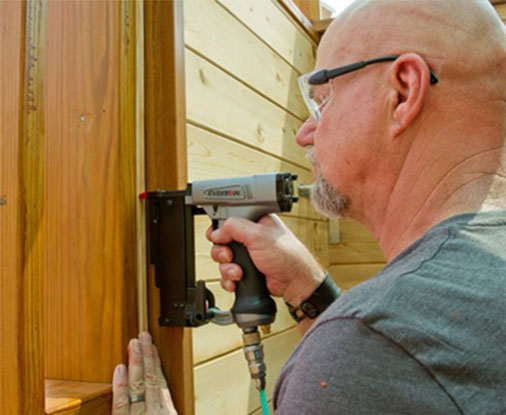
Choosing a Finish Nailer -15, 16, 18, 21, 23 Which Gauge?

Which finish nailer should I buy? Sometimes this can be a hard one to pin down given the smallest of differences between them. Despite the small differences, one size does not fit all. You will get the best results using the right nailer, whether installing doors, crown molding, fine trim, or assembling cabinets. These applications each require a certain size of nail referred to as a gauge. Gauge sizes are essentially the thickness of the nail, however, a higher number means a thinner nail. The most common gauge sizes are 15, 16, 18, 21 and 23 gauge. Let's break them down to gauge what works best for you.
15 and 16 gauge Finish Nailer
Start with the 15 gauge finish nailers, these are ideal for heavier jobs working with thick, dense wood, door trims, casings, or hanging doors. 15-gauge trim nailers are more powerful like AFN1565, is a good choice for you. the finish nails come with round heads giving you the penetrating power and holding power needed for these types of applications.
- base moldings
- interior trim works
- baseboard
Because it's smaller, it has a little less holding power than the 15-gauge nailer and leaves a smaller hole. So, if you're looking for just the right amount of power with a slightly cleaner finish, then our FN1665 16-gauge finish nailer would be your go-to tool.
18 gauge Finish Nailer
- Baseboard shoe molding
- Decorative moldings
- Assembling small DIY projects
Brad nails are thin wire-like nails and because they are so thin they often eliminate the need to fill in holes left behind. However, you will not get the holding power as the 16-gauge but you won't need it if you're using it on the above-mentioned applications. If you're thinking about joining thick pieces of plywood or hardwoods, then a brad nailer won’t have enough power to join these materials properly. If you’re looking to join anything smaller, then EVERWIN’s FN1850 18-Gauge Brad Nailer would be a great choice.
21-gauge Finish Nailer
- Mirrors
- Picture frames
- Finish and trim

This size leaves a smaller indent in the workpiece compared to the 18-gauge, but with just enough holding power, excellent for more delicate work. As you go higher in gauge, the indents in the workpiece keep getting smaller which means you might keep on nailing without realizing that the tool had run out of fasteners. To combat this, a useful feature on our models is the dryfire lockout that prevents the tool from firing when there are no fasteners in the chamber.
23 gauge Finish Nailer
For the most delicate and intricate finish work, most pros turn to the 23-gauge. As with its 21-gauge relative, according to the current regulations in North America, they don’t require contact trips. This means that you won’t have that extra element pressing into your precious workpiece, leaving an almost invisible hole. Keep in mind that headless pins have little holding power and are not meant to be structural. 23-gauge pin nailers are normally combined with adhesives to create a more permanent bond.

- To avoid splitting or damaging moldings
- Pinning into corners
- Tacking a hardboard or MDF pattern
If you’re looking for an industrial strength pinner, look no further than our P635B 23-gauge Micro Pinner, a 23-gauge that drives 35mm headless pins without splitting and requires no touch-up work. There is also a 50mm option, the P650 23-gauge Pin Nailer.
Industrial Grade Finish Nailers
- The average run-time for each use
- The conditions it will be used under
Our tools are designed based on the higher metrics of these answers. When maintained properly, EVERWIN's industrial tools will last up to 1 million cycles compared to DIY’s 10-30k cycles, ultimately saving you time and money. We put high importance on keeping up our reputation for excellent build quality where durability is crucial to productivity. Use our local dealer locator to find the nearest EVERWIN dealers.
# # #
About EVERWIN PNEUMATIC
EVERWIN® was founded in 2012 by a group of American and Taiwanese pneumatic tool experts, each boasting decades of experience and success in the world of pneumatic fastening. They founded the company with one shared goal in mind— to “build a brand the fastening industry can rely on for consistency and efficiency”. EVERWIN quickly garnered recognition as a premier brand for industrial fastening tools. With strong roots in the industrial market, EVERWIN has a different take on construction nailers and staplers from most price-driven manufacturers today; and with a touch of innovation, its 2017 and 2018 product introductions earned EVERWIN back-to-back Pro Tool Innovation Awards
